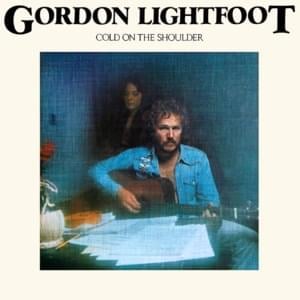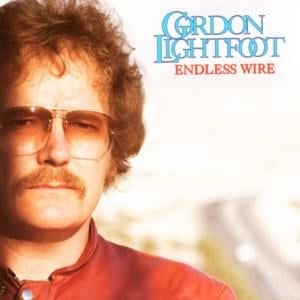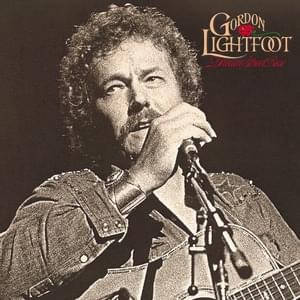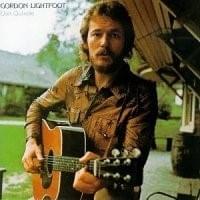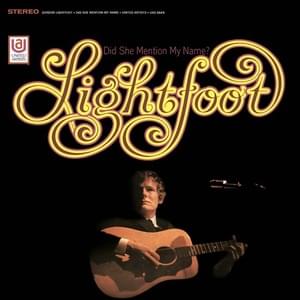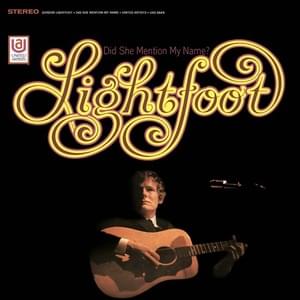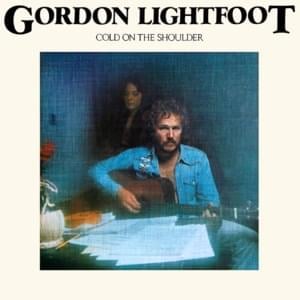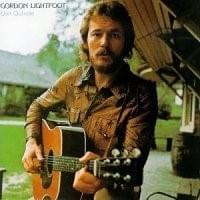Cherokee bend de Gordon Lightfoot
Letra de Cherokee bend
His father was a man who could never understand
the shame on a red man's face
so they lived in the hills and they never came down
but to trade in the white man's place
It was early in the spring when the snow had disappeared
they came down with a bag of skins
in the fall of the year of 1910
daddy died by the rope down in cherokee bend.
Daddy didn't like what the white man said
'bout the dirty little kid at his side
daddy didn't like what the white man did
nor the deal or the way that he lied
there was blood on the floor of the government store
when the men took his daddy away
but the boy stayed back till he come to his end
and he run like the wind from cherokee bend.
Now the mother was alone and the winter was at hand
and she prayed to her spirit kin
it was warm in the lodge in the kentucky hills
on the day when the boy came in
Then a blizzard came down and it covered up the door
Till they thought that it never would end
and he told her the tale of the terrible affair
in the government store down in cherokee bend
Daddy didn't like what the white man said
'bout the dirty little kid at his side
daddy didn't like what the white man did
nor the deal or the way that he lied
For three long days and three long nights
they wept and they mourned and then
she returned to her work and her weavin'
and they tried to forget about cherokee bend
Now the boy wasn't big but he hunted what he could
and they lived for a time that way
but the food run low and the meat went bad
and she said to the boy one day
I'm leaving tonight and i never will return
>from the land of my spirit kin
you must take what you need and trade what you can
for a red man's grave down in cherokee bend
It wasn't very long till she closed her eyes
and he wrapped her in a robe
he found her a place on the side of the hill
and he buried her in the snow
Early in the spring he was seen in the town
with his load looking ragged and thin
not a year had gone by till he stood once again
in the government store down in cherokee bend
He was ten years tall and a redskin too
so he hadn't much face to save
and the men sat around and they laughed and they clowned
at the talk of a criminal's grave
Then the man from the east didn't smile when he said
you're the son of that indian scum
if you value your hide then you better abide
by the white man's rules here in cherokee bend.
Daddy didn't like what the white man said
'bout the dirty little kid at his side
daddy didn't like what the white man did
nor the deal or the way that he lied
And he spit on the floor of the government store
and it served him to no good end
at the close of the day they had taken him away
to the white man's school down at cherokee bend
It's been 21 years since the boy disappeared
where he run to, nobody knows
but they say he fell in with a man named jim
and he rides in the rodeos
And they say he returns all alone to a place
hidden deep in the kentucky glen
and it's pretty well known who hauled up the stone
to the grave on the hill above cherokee bend
Daddy didn't like what the white man said
'bout the dirty little kid at his side
daddy didn't like what the white man did
nor the deal or the way that he lied
There was blood on the floor of the government store
when the men took his daddy away
it was 1910 and they never had a friend
when he died by the rope down at cherokee bend
it was 1910 and they never had a friend
when he died by the rope down at cherokee bend
Traducción de Cherokee bend
Letra traducida a Español
Su padre era un hombre que nunca pudo entender
la vergüenza en el rostro de un indígena,
así que vivían en las colinas y nunca bajaban
más que para comerciar en el territorio del hombre blanco.
Era a principios de primavera cuando la nieve había desaparecido,
bajaron con una bolsa de pieles
en el otoño del año 1910,
papá murió por la soga en Cherokee Bend.
A papá no le gustaba lo que decía el hombre blanco
sobre el niño sucio a su lado;
a papá no le gustaba lo que hacía el hombre blanco
ni los tratos ni la forma en que mentía.
Había sangre en el suelo de la tienda del gobierno
cuando se llevaron a su papá.
Pero el chico se quedó atrás hasta llegar a su fin
y corrió como el viento desde Cherokee Bend.
Ahora la madre estaba sola y el invierno se acercaba,
y ella rezaba a sus espíritus familiares;
hacía calor en la cabaña en las colinas de Kentucky
el día en que el chico entró.
Luego llegó una tormenta de nieve y cubrió la puerta
hasta pensar que nunca terminaría;
y él le contó la historia del terrible incidente
en la tienda del gobierno de Cherokee Bend.
A papá no le gustaba lo que decía el hombre blanco
sobre el niño sucio a su lado;
a papá no le gustaba lo que hacía el hombre blanco
ni los tratos ni la forma en que mentía.
Durante tres largos días y tres largas noches
lloraron y lamentaron, y luego
ella volvió a su trabajo y su tejido,
e intentaron olvidar Cherokee Bend.
El chico no era grande pero cazaba lo que podía,
y así vivieron un tiempo;
pero la comida escaseó y la carne se echó a perder,
y ella le dijo al chico un día:
Me voy esta noche y nunca volveré
del país de mis ancestros espirituales;
debes llevarte lo necesario e intercambiar lo que puedas
por una tumba indígena allí en Cherokee Bend.
No pasó mucho tiempo hasta que cerró los ojos,
y él la envolvió en un abrigo;
encontró un lugar al lado de la colina
y la enterró en la nieve.
A principios de primavera fue visto en el pueblo
con su carga luciendo harapiento y delgado;
no había pasado un año cuando volvió a estar una vez más
en la tienda del gobierno de Cherokee Bend.
Tenía diez años y también era indígena,
así que no tenía mucho orgullo por salvar;
y los hombres estaban sentados riendo y burlándose
de hablar sobre una tumba criminal.
Entonces el hombre del este no sonrió cuando dijo:
Eres hijo de esa escoria india;
si valoras tu piel será mejor cumplir
con las reglas del hombre blanco aquí en Cherokee Bend.
A papá no le gustaba lo que decía el hombre blanco
sobre el niño sucio a su lado;
a papá no le gustaba lo que hacía el hombre blanco
ni los tratos ni cómo mentía.
Y escupió en el suelo de la tienda del gobierno
y eso no le sirvió para nada bueno;
al final del día se lo llevaron
a la escuela del hombre blanco allí en Cherokee Bend.
Han pasado 21 años desde que desapareció aquel chico;
adónde fue nadie sabe,
pero dicen que cayó bajo las órdenes de un tal Jim
y ahora monta rodeos.
Y cuentan que regresa solo a un lugar
escondido profundamente en el valle de Kentucky;
y es bien sabido quién llevó aquella piedra
al lugar donde está enterrado sobre Cherokee Bend.
A papá no le gustaba lo que decía el hombre blanco
sobre el niño sucio a su lado;
a papá no le gustaba lo que hacía el hombre blanco
ni los tratos ni cómo mentía.
Había sangre en el suelo de la tienda del gobierno
cuando se llevaron a su padre lejos;
era 1910 y nunca tuvieron amigos
cuando él murió ahorcado allí mismo, arriba,
en Cherokee Bend."
0
0
Tendencias de esta semana
Funeral
Dermot Kennedy
Besarte
HYBYM
Francés Limón
Los Enanitos Verdes
caperuza
Fuerza Regida
Streets of Minneapolis
Bruce Springsteen
NO BATIDÃO
Zxkai
Mercy
Muse
My boo
Usher
K.
Cigarettes After Sex
Mono ft. skaiwater
I-dle (아이들)
Uuuiii
Tempo
Niño
Milo J
Corazón : Classics
Nsqk
DtMF
Bad Bunny
Enseñame
Junior H
